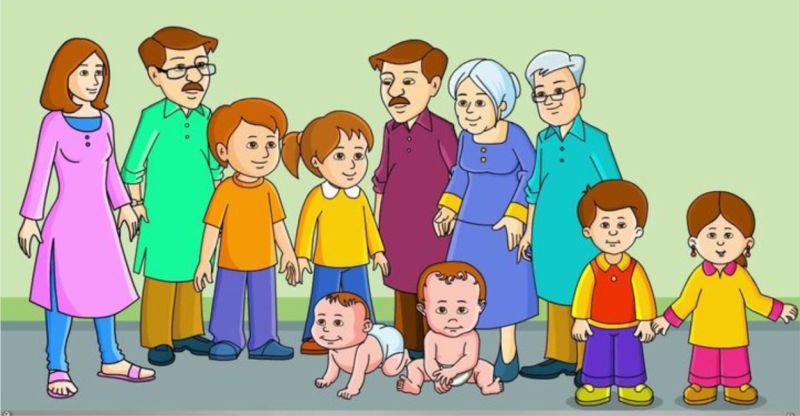The unparalleled benefits of joint families for children

- Varda Sharma
- 19 Jan, 2024
In the tapestry of familial bonds, the joint family structure weaves a narrative of shared experiences, support, and a collective upbringing that leaves an indelible mark on the lives of children. While the societal landscape has witnessed a shift towards nuclear families, the profound advantages of the joint family system for the holistic development of children should not be overlooked.
One of the most significant benefits of growing up in a joint family is the abundance of emotional support and companionship that children experience. In a joint family setup, children are surrounded by not just their parents but also grandparents, uncles, aunts, and cousins. This expansive network of relationships fosters a sense of belonging, providing children with a robust emotional foundation. Unlike the potential isolation that can be felt in nuclear families, joint families create a nurturing environment where children always have someone to turn to for guidance, comfort, and shared moments of joy or sorrow.
Furthermore, the joint family system serves as a natural repository of wisdom and diverse perspectives. Grandparents, with their wealth of life experiences, become invaluable reservoirs of knowledge, passing down traditions, values, and cultural nuances. The constant interaction with extended family members exposes children to a variety of viewpoints, helping them develop a broader understanding of the world. This exposure contributes significantly to the enrichment of a child's intellectual and emotional intelligence, fostering open-mindedness and adaptability.
In a joint family, the sharing of responsibilities becomes a cornerstone of daily life. Children witness firsthand the collaborative efforts put forth by family members in managing household chores, financial matters, and decision-making. This exposure not only imparts practical life skills but also instills a strong work ethic and a sense of responsibility in children. The division of labour within the joint family setting teaches children the importance of cooperation, teamwork, and the interdependence that defines healthy relationships.
Moreover, the joint family structure serves as a natural support system in times of crisis. Whether it is illness, financial setbacks, or emotional challenges, the collective strength of the family ensures that no member is left to navigate the storm alone. This safety net fosters resilience and emotional well-being in children, providing them with a sense of security that becomes the bedrock for their personal growth.
Joint families are also conducive to the development of social skills in children. The constant presence of cousins and other relatives creates a dynamic social environment, offering children the opportunity to hone their interpersonal skills from a young age. Negotiation, conflict resolution, and the art of compromise become second nature as children navigate the intricate web of relationships within the joint family. These social skills, honed in the familial setting, lay the groundwork for successful interactions in wider social circles as the child grows.
In a world that is becoming increasingly individualistic, joint families play a pivotal role in instilling values of empathy, respect, and cooperation in children. The daily interactions with relatives teach children the importance of respecting diverse opinions, accommodating differences, and cherishing the bonds that transcend individual interests. These values, imbibed during formative years, shape the moral compass of children, fostering a sense of community and social responsibility.
The benefits of a joint family for children extend far beyond the confines of a shared roof. The emotional support, diverse perspectives, shared responsibilities, and social development opportunities provided by the joint family system contribute to the holistic growth of children. While the societal landscape may continue to evolve, the timeless virtues of togetherness and shared experiences within joint families remain an enduring source of strength for the generations to come. It is in embracing and preserving these values that we pave the way for a future generation that is not just academically adept but also emotionally resilient, socially adept, and morally grounded.




